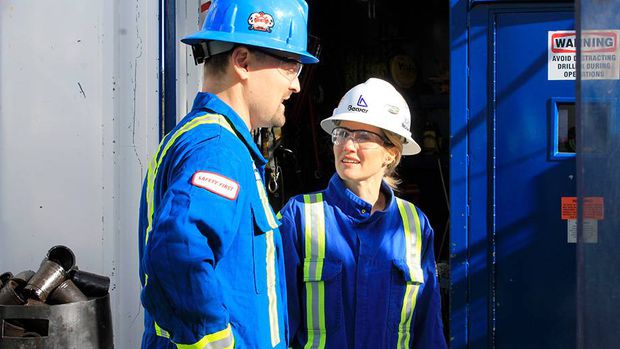Kevin Krausert is the president & CEO of Beaver Drilling, co-founder of the Avatar Program, and the drilling rig executive chair of the Canadian Association of Oilwell Drilling Contractors:
“For the past five years, I have had the responsibility and the privilege of leading Canada’s oldest oil and gas drilling company through the ups and downs of an industry facing unprecedented disruption and rapid technological change. The global realization of climate change has forced all Canadians to rethink how we use and produce energy.”
The Globe and Mail: “During the past two weeks, COVID-19 and the Saudi-Russian oil-price war have led to the most dire market conditions our industry has faced. And there is no doubt that the economic impact will be devastating not just for the tens of thousands of Canadians who work in the energy industry, but every Canadian. The COVID-19 crisis will eventually end, but Canada has to make some smart and strategic choices in the coming days about how to build a cleaner and more resilient energy industry that can lead the world to a lower-carbon future. There is a real opportunity to use our current crisis to pivot to a new energy future all Canadians can support.”
There are many initiatives afoot: exporting liquefied natural gas has the ability to dramatically reduce the world’s carbon footprint by displacing coal in the energy-hungry developing world; carbon capture and sequestration (CCS) technology allows us to decarbonize many heavy industries such as steel production and cement, which are otherwise nearly impossible to decarbonize fully; enhanced oil-recovery processes and carbon trunk lines hold the power of turning oil into a renewable energy source; and blue hydrogen (hydrogen made from natural gas) holds the potential of transforming much of Canada’s existing oil and gas infrastructure into a net-zero energy source.

The price of blue hydrogen is mainly influenced by natural gas prices. But its second-most important driver is the cost of capturing and reusing or storing carbon emissions.
This puts the current price of blue hydrogen in Europe a bit above the price of grey hydrogen, but that gap will shrink if the price of CO2 emissions increases further in the coming years. Once the process of CCUS (Carbon Capture, Utilization, and Storage) in blue hydrogen plants is scaled up and standardized, the cost are likely to come down.
Canada can use this crisis caused by the novel virus COVID-19 as a pivot for transformation. But we do need income protection for the thousands of oil and gas workers, from British Columbia to Newfoundland and Labrador. These are among the many hard-working Canadians who will imminently feel an impact from the crisis. The initiatives already taken by the Governments of Canada and Alberta, along with the recommendations of the Business Council of Alberta, should be applauded.
